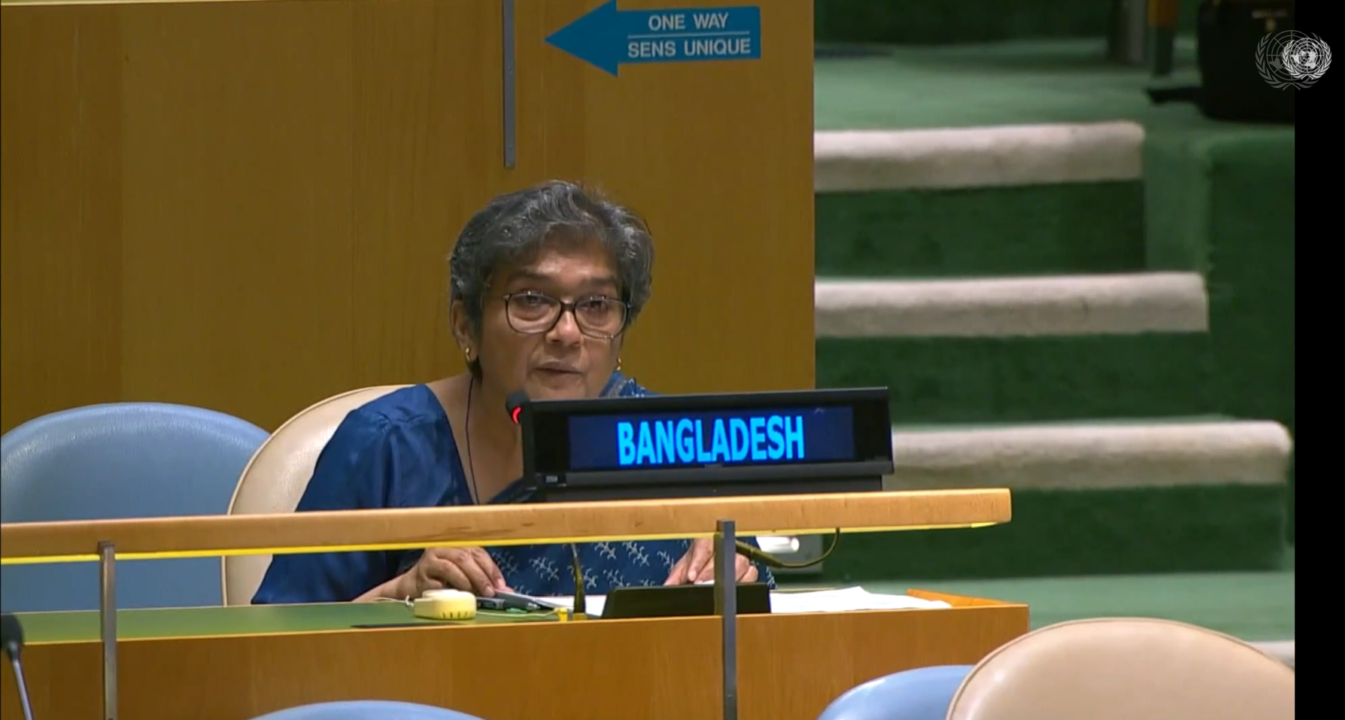I thank you, Madame Chair, for giving me the floor.
My delegation aligns itself with the statements made by the Chairs of G77.
Madame Chair,
‘Eradicating poverty and hunger in all their forms everywhere’ are overarching goals for Agenda-2030. Yet global efforts for achieving these goals had always been on a slow track. And now, the Covid-19 pandemic has compounded the poverty and hunger situation globally. The Secretary General’s reports under these agenda items put a sharp spotlight on the daunting challenges to achieve SDGs 1 and 2. The pandemic has hit the food production and distribution system the hardest. The worsening climatic condition adds to the challenges manifold.
Madame Chair,
In Bangladesh, we have been successful in reducing the poverty rate from 31.5%to 20.5% over the past decade. We also achieved food self-sufficiency. Building on this momentum, we have set higher targets for ourselves in the coming decades. We aim to achieve zero hunger by 2030 and reduce the rate of poverty to 2.59% by 2041.
We wish to see enhanced global support and actions to achieve these goals.
Allow me to highlight a few specific points in this regard:
First, for creating a poverty-free world, mobilizing adequate resources and financing is critical. It is imperative to revitalize our external sources of financing, including export earnings, remittances, ODA, and private financing to ensure a high momentum in our fight against poverty and hunger. We urge our development partners to come forward with targeted support to revive these sources of financing, especially in this time of crisis.
Second, poverty is a multidimensional phenomenon. Therefore, we need to factor in multidimensional indices in our measurement of poverty. The income only criteria is not enough. We need to consider other indices including access to basic services such as safe water, education, electricity, food, and so on.
In Bangladesh, we have already introduced the multidimensional poverty index. We call on the development partners and the UN agencies to take this into account in our collaborative efforts to fight poverty.
Third, the role of STI is critical for the eradication of poverty, hunger, and malnutrition. The developing countries need increased investments and targeted technology support for agricultural R&D, effective food storage and distribution systems, and for tackling climate change.
Fourth, climate change is having serious impacts on the sustainability of the global agro-food system. And it can aggravate the poverty situation manifold.
The upcoming COP-26 provides us an opportunity to renew our commitment towards a more resilient agriculture and food system. We call on the developed countries to fulfill their commitments of the Paris Agreement in this regard and agree on more ambitious targets.
Finally, in 2019, this Committee unanimously adopted a resolution to promote the benefits of natural plant fibres. Plant fibers can offer eco-friendly alternatives to many harmful practices in our daily lives and workplace. Its enhanced use can also bring in economic benefits to millions of small-scale farmers and low-wage workers.
As the penholder, my delegation looks forward to working with the entire membership for the smooth adoption of this important biennial resolution at this session.
I thank you.

